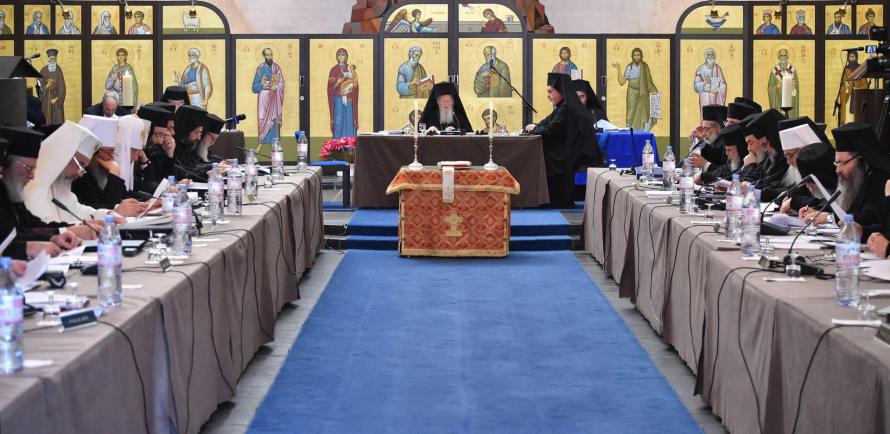
Resolution of the School of Pastoral and Social Theology in Thessaloniki on the Holy and Great Council

www.basilica.ro – Aurelian Iftimiu – May 2016
The School of Pastoral and Social Theology of the Faculty of Theology of Aristotle University of Thessaloniki, following discussions held during its Assembly, session no. 563/18 May 2016, salutes the decision of the Synaxis of Primates of the Orthodox Autocephalous Churches (21-28 January 2016) regarding the convocation of the Holy and Great Council of the Orthodox Church on the forthcoming Feast of Pentecost (18-27 June 2016), at the Orthodox Academy of Crete, Kolymbari, Chania, and prays for the fruition of its works.
After an interlude of several centuries, the Synodical Institution is being restored, on a pan-Orthodox level, by the “dutiful responsibility of the Ecumenical Patriarchate as the presiding Church” and in “cooperation” with all other Patriarchates and Autocephalous Churches, especially their Primates. This event fills all with joy and hope, with regard to the witness of Orthodoxy in the contemporary world.
As responsible academics, we belong to a School, which, through its members, had and continues to have particular involvement in the Pre-Conciliar process, to this very day. We carefully monitor the public dialogue and the statements of hierarchs and theologians who move within the institutional framework, taking into account the official texts and proceedings of the Pre-Conciliar Conferences. Pursuant to the above, we note the following:
By the convocation of the Council the unity of the Orthodox Church is affirmed and, in great measure, insularity is overcome, which over the last few centuries, principally on account of ethno-phyletism, threatened ecclesiastical unity and troubled the Orthodox Church.
Thus, a response is offered to the accusation that the Orthodox Church is unable to function synodically on a Pan-Orthodox level and that the Synodical Institution, this fundamental ecclesiological principle, has in some way been debilitated over the last few centuries, a claim that is inaccurate.
The local Orthodox Churches are proceeding with decisiveness towards greater Pan-Orthodox cooperation in order to contend with lasting pastoral, social, canonical problems, such as that of the Orthodox Diaspora, marriage, and other issues noted in inter-Orthodox and inter-Church deliberations. As it stands before these new challenges, which in many ways are currently putting ecclesiastical discourse to the test, it is of utmost necessity for the primary, Pan-Orthodox, synodical instrument to make responsible decisions.
Inasmuch as the Orthodox flock has, at present, spread throughout the world, proper pastoral concern must be expressed through innovative and appropriate synodical decisions. The competent pastors of the Church cannot remain indifferent to these new problems, structures and challenges (ethics, bioethics).
Hence, with the Holy and Great Council a new beginning is inaugurated, which we hope and pray will continue. Moreover, His Holiness, the Ecumenical Patriarch Bartholomew himself publicly announced as much at the last Synaxis of Primates. For many decades, from the beginning of the 20th century until today, the expression of the Synodical Institution, as both a theological principle and ecclesiastical practice, has been renewed.
We, as responsible academics, are all obliged to assist the Church in her work because this is precisely how we express theology, not only as an academic vocation but as ministry (diakonia) to the living ecclesiastical community, as it is applied and elucidated in the contemporary world.
With greetings in the Risen Christ, we pray for the success of the Council.
On behalf of the Faculty Assembly of the School of Pastoral and Social Theology,
The President
Professor Konstantinos P. Chrestou

[…] Source link […]